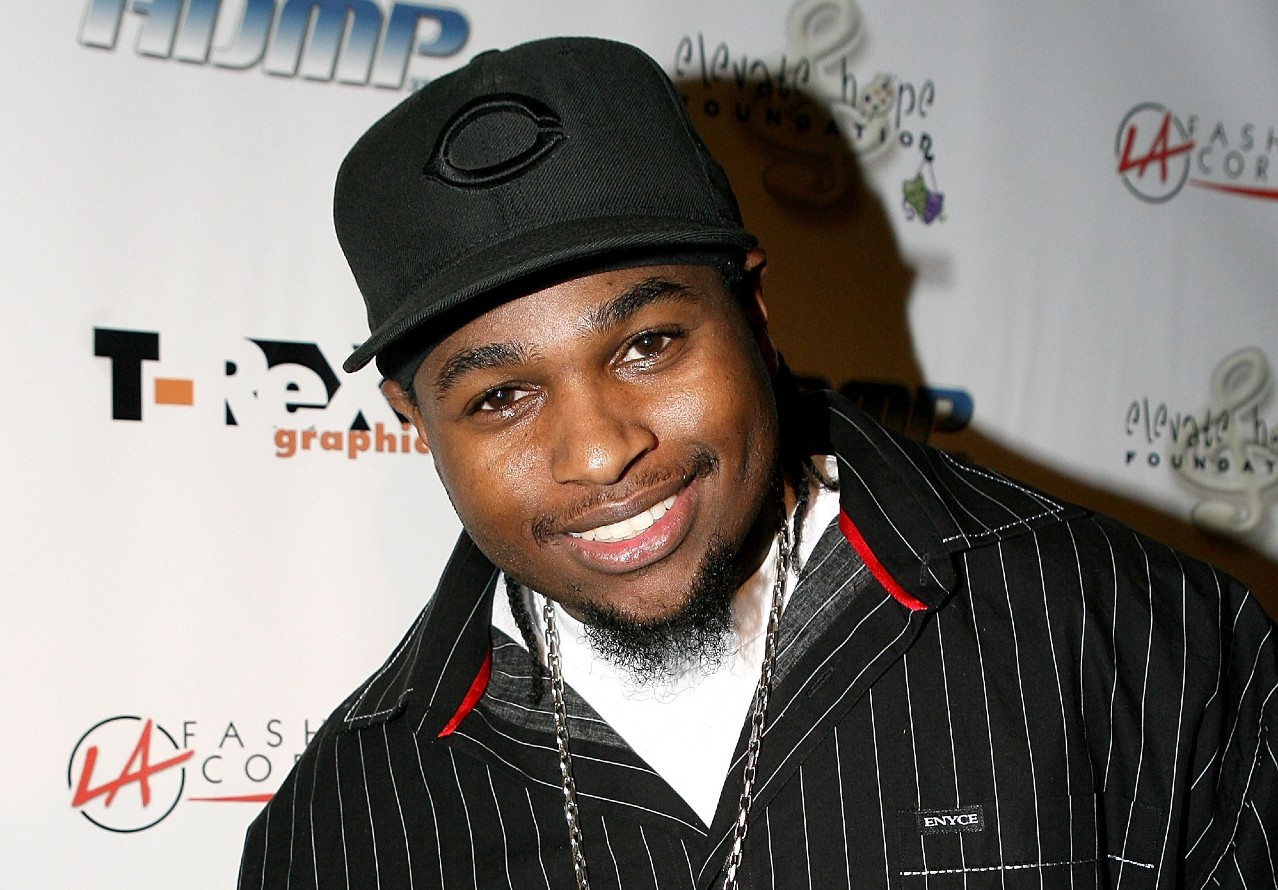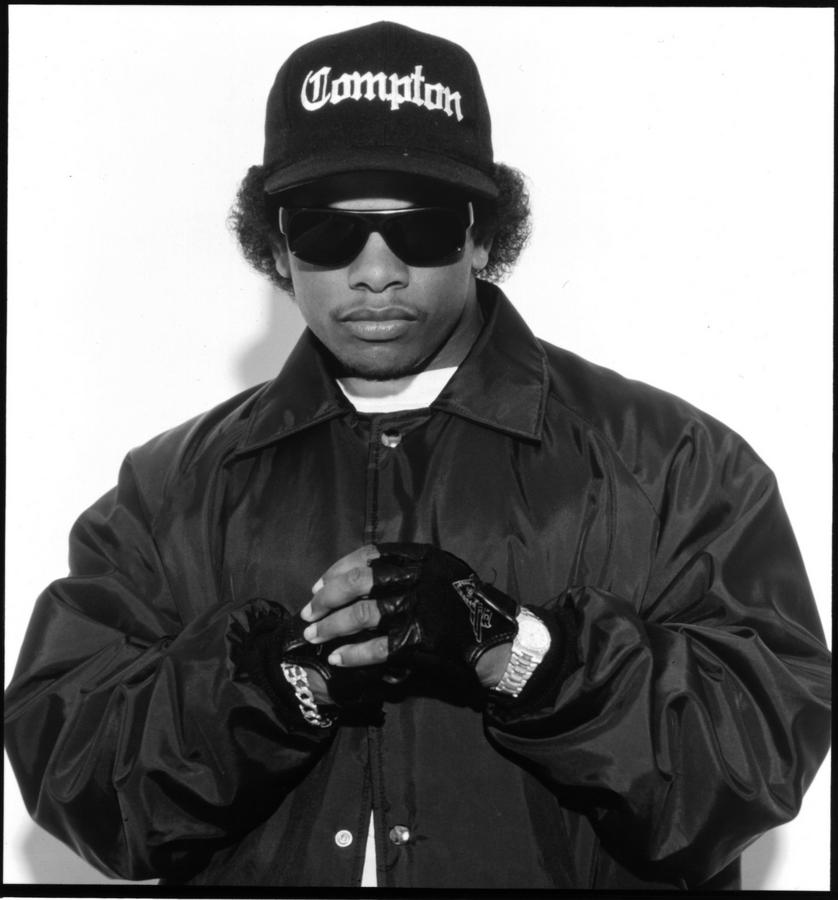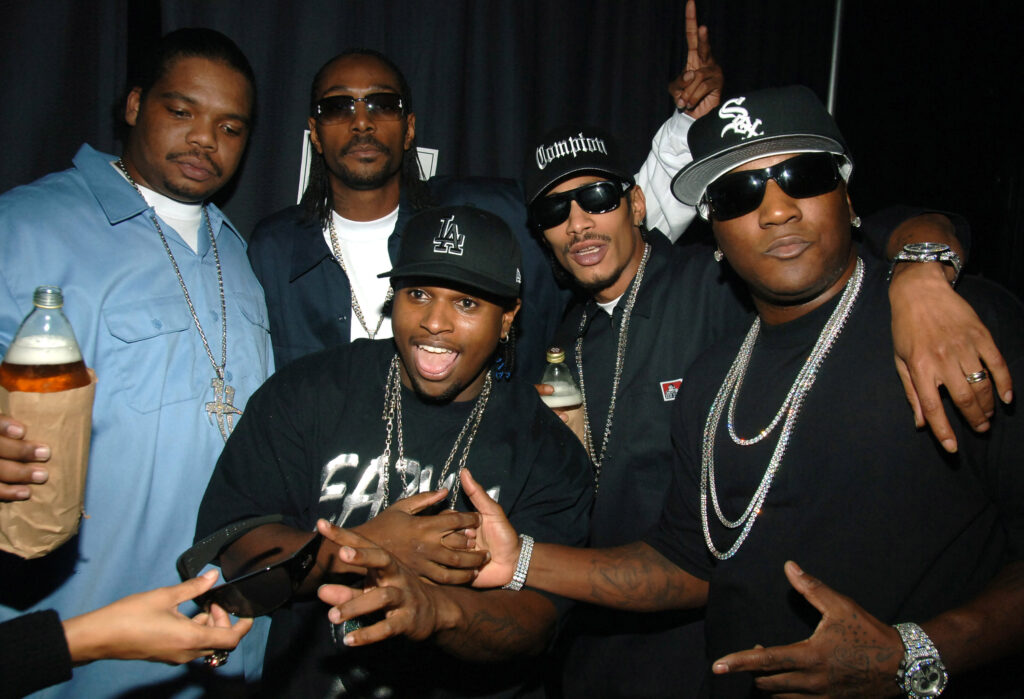Eazy-E: Compton Legend, Born & Gone Too Soon (1964-1995)
Could a life so brilliantly incandescent be extinguished so swiftly? The story of the late Eazy-E is a stark reminder of the fragility of life and the enduring power of art, legacy and impact, particularly within the realm of hip-hop.
Born Eric Lynn Wright on September 7, 1964, in Compton, California, Eazy-Es life was a whirlwind of creativity, controversy, and ultimately, tragedy. His untimely death on March 26, 1995, at the age of 30, sent shockwaves through the music industry and left an unfillable void in the landscape of hip-hop. But to understand the magnitude of this loss, one must delve into the details of his life and the cultural context that shaped him.
Compton in the 1980s was a city grappling with socioeconomic hardship, gang violence, and police brutality. It was a powder keg of frustration and anger, and Eazy-E, like many others, was caught in the crossfire. But instead of succumbing to the circumstances, he channeled his experiences into art, using music as a vehicle to tell the stories of his community. He started as a street entrepreneur, saving money from his activities and transforming it into a different kind of venture a record label. This entrepreneurial spirit, combined with a raw talent for recognizing and nurturing musical abilities, would lay the foundation for his future success.
Ruthless Records, the label Eazy-E co-founded with Jerry Heller, became a launchpad for some of the most groundbreaking and influential hip-hop artists of all time. N.W.A (Niggaz Wit Attitudes), the group that catapulted Eazy-E to superstardom, was a collective of raw talent, including Ice Cube, Dr. Dre, MC Ren, and DJ Yella. Their music was unapologetically honest, brutally real, and often controversial. They spoke of the realities of life in Compton with unflinching candor, addressing issues that were often ignored or glossed over by mainstream media. Songs like "Straight Outta Compton" and "Fuck tha Police" became anthems of rebellion, resonating with marginalized communities across the country and sparking a national conversation about race, poverty, and police brutality.
Eazy-E's own persona within N.W.A was that of the streetwise hustler, the voice of the streets. His high-pitched delivery and often humorous lyrics provided a counterpoint to the more aggressive styles of Ice Cube and Dr. Dre. He was the glue that held the group together, the charismatic frontman who could both shock and entertain. While his lyrical skills might not have been as technically proficient as some of his counterparts, his presence and charisma were undeniable.
The success of N.W.A was meteoric. "Straight Outta Compton" became a platinum-selling album, defying expectations and proving that there was a huge audience for authentic, unfiltered hip-hop. But the group's success was not without its challenges. Their music was banned from many radio stations, and they faced constant scrutiny from law enforcement and politicians. They were accused of glorifying violence and disrespecting authority, but they argued that they were simply reflecting the realities of their environment. This controversy, however, only served to amplify their message and solidify their status as cultural icons.
- Unfound Searches Aditi Mistry Explicit Content Trends
- Fix Aditi Mistry Hot Live 2025 Search Tips More
Internal tensions and financial disputes eventually led to the breakup of N.W.A. Ice Cube was the first to leave, followed by Dr. Dre, who went on to form Death Row Records with Suge Knight. The split was acrimonious, with diss tracks and personal attacks exchanged between the former bandmates. Eazy-E found himself at odds with both Ice Cube and Dr. Dre, and their feud became one of the most infamous in hip-hop history. Despite the animosity, Eazy-E continued to run Ruthless Records, signing and promoting new artists like Bone Thugs-N-Harmony, who achieved considerable success under his guidance.
In early 1995, Eazy-E was admitted to Cedars-Sinai Medical Center in Los Angeles with what he initially believed to be asthma. However, he was soon diagnosed with AIDS, a devastating blow that sent shockwaves through the music world. Just weeks later, on March 26, 1995, he succumbed to the illness at the age of 30. His death served as a wake-up call to the hip-hop community and beyond, highlighting the importance of safe sex and raising awareness about the AIDS epidemic. In his final days, Eazy-E made amends with Ice Cube and Dr. Dre, signaling a desire for reconciliation and forgiveness.
Eazy-E's legacy extends far beyond his music. He was a pioneer who paved the way for countless artists and entrepreneurs in the hip-hop industry. He demonstrated that it was possible to achieve success on your own terms, without compromising your vision or your roots. He challenged the status quo and gave a voice to the voiceless. His music continues to inspire and resonate with generations of listeners, and his story remains a testament to the power of art and the enduring spirit of resilience.
His impact on the music landscape is undeniable, and even now, decades after his death, the echoes of his work can be heard in the music of countless artists. He embodied the spirit of the Wild West, creating his own rules and building an empire from the ground up. The boldness of Ruthless Records and the unabashed honesty of N.W.A challenged the mainstream and forced the world to confront the realities of urban life.
Consider the influence on subsequent generations. Artists like Kendrick Lamar, who also hails from Compton, have openly acknowledged the debt they owe to Eazy-E and N.W.A. The storytelling style, the focus on social commentary, and the willingness to challenge authority are all hallmarks of Eazy-E's legacy. He opened doors for artists who wanted to speak their minds and tell their stories without fear of censorship or reprisal.
The controversies that surrounded Eazy-E's career also sparked important conversations about censorship, artistic freedom, and the role of music in society. He was a lightning rod for criticism, but he never backed down from his beliefs. He defended his music as a reflection of reality, arguing that it was the responsibility of artists to speak truth to power, even if that truth was uncomfortable or unpopular.
His entrepreneurial spirit is another important aspect of his legacy. He built Ruthless Records from scratch, turning it into a multi-million dollar empire. He took risks, invested in talent, and created opportunities for others. He proved that it was possible to achieve success through hard work, determination, and a clear vision. He became a role model for aspiring entrepreneurs in the hip-hop community and beyond.
The complicated personal life of Eazy-E is often overshadowed by his professional accomplishments. He had a number of children with different women, and his relationships were often tumultuous. However, he was also known for his generosity and his loyalty to his friends and family. He was a complex and multifaceted individual, and his personal life adds another layer to his story.
The circumstances surrounding his death also continue to be a subject of discussion and debate. Conspiracy theories abound, fueled by unanswered questions and lingering suspicions. While the official cause of death was AIDS, some people believe that there may have been other factors involved. Regardless of the truth, his death remains a tragedy that cut short a life full of potential.
In conclusion, Eazy-E was a complex and controversial figure whose impact on music and culture is undeniable. He was a pioneer, an entrepreneur, and a voice for the voiceless. His music continues to inspire and resonate with listeners around the world, and his story serves as a reminder of the power of art and the enduring spirit of resilience. Despite the controversies and the tragedies that marked his life, his legacy remains secure as one of the most important and influential figures in hip-hop history.
| Eazy-E: Biographical and Professional Information | |
|---|---|
| Category | Details |
| Full Name | Eric Lynn Wright |
| Birth Date | September 7, 1964 |
| Birth Place | Compton, California, USA |
| Death Date | March 26, 1995 |
| Cause of Death | AIDS-related complications |
| Age at Death | 30 |
| Occupation | Rapper, Record Producer, Entrepreneur |
| Genres | Hip Hop, Gangsta Rap |
| Associated Acts | N.W.A, Bone Thugs-N-Harmony |
| Record Label | Ruthless Records (Co-founder) |
| Notable Albums | Eazy-Duz-It, Straight Outta Compton (with N.W.A) |
| Significant Songs | "Boyz-n-the-Hood", "Straight Outta Compton", "Eazy-er Said Than Dunn" |
| Years Active | 1986 1995 |
| Net Worth (at time of death) | Estimated $50 million |
| Legacy | Pioneering figure in gangsta rap, founder of Ruthless Records, influential in West Coast hip hop scene. |
| External Resources | Eazy-E at AllMusic |
Article Recommendations



Detail Author:
- Name : Mrs. Beulah Ziemann III
- Username : tillman.leonardo
- Email : hackett.reuben@koss.com
- Birthdate : 2007-03-31
- Address : 15415 Jayden Radial Apt. 034 West Kieranburgh, AL 98468
- Phone : +1.956.698.4728
- Company : Aufderhar, Rohan and Morar
- Job : Technical Director
- Bio : Et eum sunt voluptas rerum laudantium dolores. Modi sequi expedita ex sint voluptas dolores dolorem et. Voluptate id provident nesciunt ea aut.
Socials
instagram:
- url : https://instagram.com/furman3127
- username : furman3127
- bio : Quos accusamus quo aut sit nihil. Dolor ut nihil quis omnis similique excepturi minima.
- followers : 4369
- following : 2769
tiktok:
- url : https://tiktok.com/@fmccullough
- username : fmccullough
- bio : Aut adipisci ipsum aut est autem enim. Quia sit dolore quis aut dolores.
- followers : 3596
- following : 2855
facebook:
- url : https://facebook.com/furman_id
- username : furman_id
- bio : Rem vel quos explicabo eius ipsam non accusantium sed.
- followers : 5204
- following : 2551
linkedin:
- url : https://linkedin.com/in/furman.mccullough
- username : furman.mccullough
- bio : Asperiores rerum eum quo debitis.
- followers : 5641
- following : 1590
twitter:
- url : https://twitter.com/furman_mccullough
- username : furman_mccullough
- bio : Nulla dolores ipsam voluptas quidem. Odit nihil autem et nesciunt. Consequatur qui incidunt voluptatum corrupti. Harum magnam et et culpa.
- followers : 2328
- following : 1603